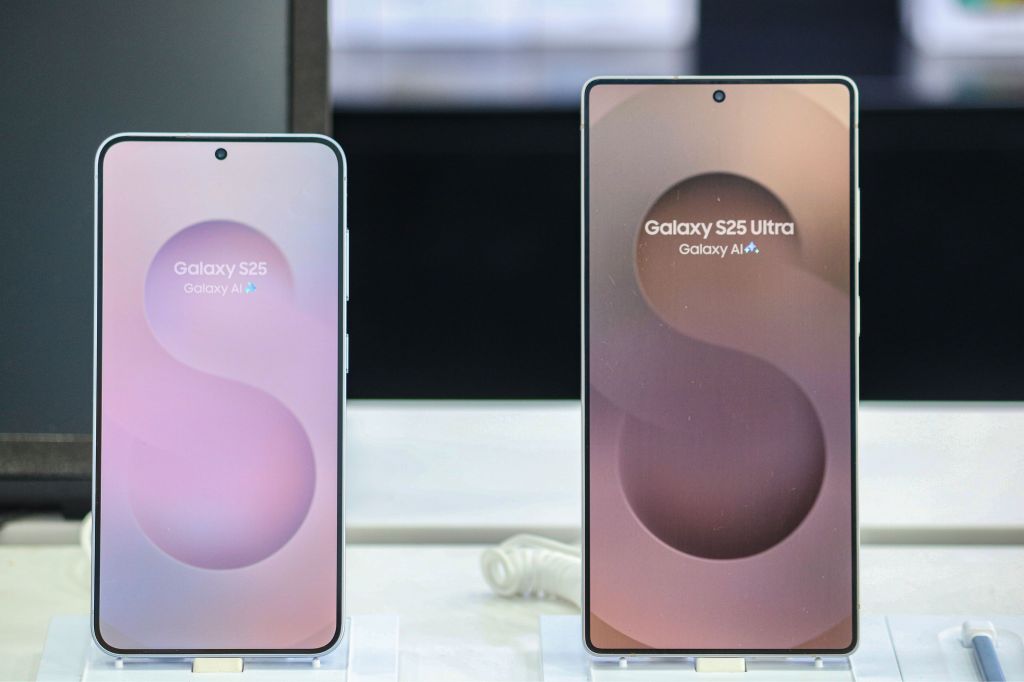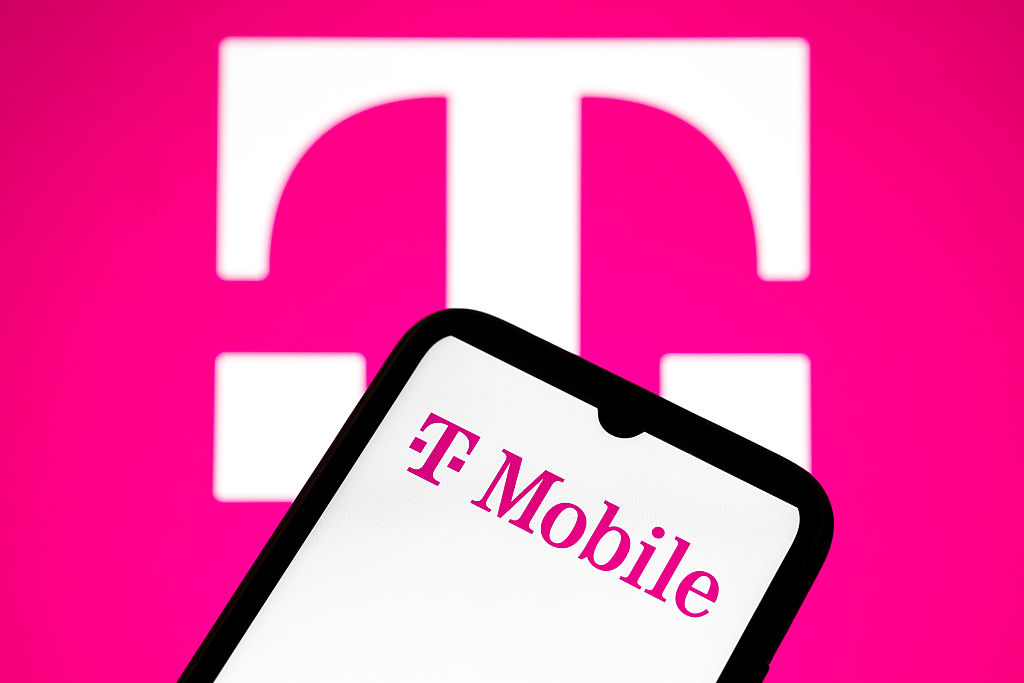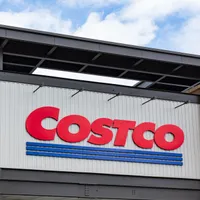Is Black Friday Worth It or Is It a Marketing Mirage?
Is Black Friday still worth it as the best day for deals? We share top tips for smart holiday shopping.

Profit and prosper with the best of Kiplinger's advice on investing, taxes, retirement, personal finance and much more. Delivered daily. Enter your email in the box and click Sign Me Up.
You are now subscribed
Your newsletter sign-up was successful
Want to add more newsletters?

Delivered daily
Kiplinger Today
Profit and prosper with the best of Kiplinger's advice on investing, taxes, retirement, personal finance and much more delivered daily. Smart money moves start here.

Sent five days a week
Kiplinger A Step Ahead
Get practical help to make better financial decisions in your everyday life, from spending to savings on top deals.

Delivered daily
Kiplinger Closing Bell
Get today's biggest financial and investing headlines delivered to your inbox every day the U.S. stock market is open.

Sent twice a week
Kiplinger Adviser Intel
Financial pros across the country share best practices and fresh tactics to preserve and grow your wealth.

Delivered weekly
Kiplinger Tax Tips
Trim your federal and state tax bills with practical tax-planning and tax-cutting strategies.

Sent twice a week
Kiplinger Retirement Tips
Your twice-a-week guide to planning and enjoying a financially secure and richly rewarding retirement

Sent bimonthly.
Kiplinger Adviser Angle
Insights for advisers, wealth managers and other financial professionals.

Sent twice a week
Kiplinger Investing Weekly
Your twice-a-week roundup of promising stocks, funds, companies and industries you should consider, ones you should avoid, and why.

Sent weekly for six weeks
Kiplinger Invest for Retirement
Your step-by-step six-part series on how to invest for retirement, from devising a successful strategy to exactly which investments to choose.
In years past, Black Friday deals were only good the day after Thanksgiving. However, that's all changed, with the Black Friday sales period usually extending from Thanksgiving evening through Sunday night, followed by Cyber Monday — which is traditionally when lots of online shopping deals appear.
Years ago, hordes of shoppers lined up outside stores to be the first to dive into the best Black Friday deals they could find. Deep discounts on highly sought-after toys and electronics drew the masses into brick-and-mortar stores. Online shopping has changed this tradition, especially with many retailers offering Black Friday offers early, way before the big sales day actually arrives.
Added to that, there can be suspicion about the extent to which the deals offered around this time represent... a good deal. There's no denying that some of the early excitement has come out of Black Friday. But, coming just after Thanksgiving and in the run-up to the holiday gift-giving season, many people still (and may always) associate Black Friday with sales shopping.
From just $107.88 $24.99 for Kiplinger Personal Finance
Become a smarter, better informed investor. Subscribe from just $107.88 $24.99, plus get up to 4 Special Issues

Sign up for Kiplinger’s Free Newsletters
Profit and prosper with the best of expert advice on investing, taxes, retirement, personal finance and more - straight to your e-mail.
Profit and prosper with the best of expert advice - straight to your e-mail.
So, how do you work out when the best deals are on offer? And is it worth shopping on Black Friday anyways? Let's dive in.
Is Black Friday worth it? Pros and cons
The pros of Black Friday are fairly obvious: Prices are lower on certain products and memberships, like Amazon Music Unlimited and Black Friday streaming deals. If you're shopping for holiday gifts, it's a great time to save on costs. If you were planning to buy certain other items, like computer monitors or large appliances, you could also find deals to save there, too, on items you were already planning to spend on.
The cons of Black Friday come with a little more nuance. For one, you may not be aware exactly how much of a discount you actually are getting, which is why it's worth doing some research and making a plan of what you're going to buy. The other negative to Black Friday is the basic concept of spending. You could get so swept up in the deals and the adrenaline of shopping that you spend more than you need to. This is where having a plan and using one of the best budgeting apps comes in handy.
In terms of timing: As far as the quality of Black Friday deals vs sale prices on the days leading up to Black Friday, it's safe to say that usually shopping on Black Friday itself will bring the best prices. On the other hand, you're more likely to have the choice of what you want to buy if you shop early, due to potential shortages of some products advertised on Black Friday. It all comes down to what's most important to you.
One thing to note is that heading to brick-and-mortar stores, on the day, may bring some interesting gift-with-purchase offers that you won't get online or on other days.
If you wait until after Black Friday, you may get different offer options for Cyber Monday and heading into the Christmas holiday season.
Black Friday vs. Cyber Monday
When looking at Black Friday vs. Cyber Monday, some themes emerge immediately.
Generally, Cyber Monday is a continuation of the prices offered on Black Friday rather than a new raft of discounted items. So, you probably won't see better prices if you wait for Cyber Monday, instead of buying on Black Friday weekend. That does, thankfully, give you more time to make decisions.
Shopping strategies for Black Friday
When it comes to maximizing your savings on Black Friday, it helps to have a strategy.
The hottest items like electronics, toys and gadgets will be the first to sell out. Thus, it's best to prioritize those over other items like apparel, which may still have the best prices of the year but also less competition from shoppers early in the day.
Here are some other smart shopping tips for Black Friday:
- Use price-tracking tools like CamelCamelCamel, PayPal Honey, Capital One Shopping, Keepa and Slickdeals.
- Make a shopping list.
- Make a schedule of which stores to hit when prioritizing the items with the most competition for their Black Friday deals.
- Avoid impulse buys.
- Skip certain big-ticket items like appliances or mattresses if you can wait. Better deals may be coming around Presidents' Day.
- For online shoppers, set up deal alerts on Alexa or the Amazon app.
- If you're a member of Costco, Sam's Club, BJ's Wholesale, or other members-only warehouse clubs, check your ads for exclusive members-only deals.
There are two types of memberships available, Gold Star Membership and Executive. These are available as personal and business memberships. All memberships come with two cards.
> Gold Star Membership is $65 (plus sales tax)
> Executive Membership comes with 2% annual rewards and is $130 (plus sales tax)
Stack Social is offering a $45 Digital Shop Card when you sign up for either membership, effectively saving you $45 on your Costco membership fee.
Win Black Friday by planning ahead
Stores advertise Black Friday deals for weeks before the actual day, but those deals may not actually offer the best prices.
It can be easy to be overwhelmed by the numerous deals being offered for weeks on end, but with a clear head and a plan in place, you'll be sure to make the most of the holiday shopping season.
Related content
- Don't Snooze on The Best Black Friday Streaming Deals
- Costco Black Friday Deals
- Verizon Black Friday: Get a Free iPhone 16 Pro With a New Line
Profit and prosper with the best of Kiplinger's advice on investing, taxes, retirement, personal finance and much more. Delivered daily. Enter your email in the box and click Sign Me Up.

Jacob is the founder and CEO of ValueWalk. What started as a hobby 10 years ago turned into a well-known financial media empire focusing in particular on simplifying the opaque world of the hedge fund world. Before doing ValueWalk full time, Jacob worked as an equity analyst specializing in mid and small-cap stocks. Jacob also worked in business development for hedge funds. He lives with his wife and five children in New Jersey. Full Disclosure: Jacob only invests in broad-based ETFs and mutual funds to avoid any conflict of interest.
-
 Nasdaq Leads a Rocky Risk-On Rally: Stock Market Today
Nasdaq Leads a Rocky Risk-On Rally: Stock Market TodayAnother worrying bout of late-session weakness couldn't take down the main equity indexes on Wednesday.
-
 Quiz: Do You Know How to Avoid the "Medigap Trap?"
Quiz: Do You Know How to Avoid the "Medigap Trap?"Quiz Test your basic knowledge of the "Medigap Trap" in our quick quiz.
-
 5 Top Tax-Efficient Mutual Funds for Smarter Investing
5 Top Tax-Efficient Mutual Funds for Smarter InvestingMutual funds are many things, but "tax-friendly" usually isn't one of them. These are the exceptions.
-
 Is Prepaid Wireless Making a Comeback — and Can It Lower Your Phone Bill?
Is Prepaid Wireless Making a Comeback — and Can It Lower Your Phone Bill?Once seen as a budget alternative, prepaid wireless is attracting new attention as networks improve and shoppers look for flexible, lower-cost options.
-
 Tariffs: An Uninvited Valentine's Day Guest
Tariffs: An Uninvited Valentine's Day GuestExpect to pay more for flowers and chocolates this year or find creative alternatives to save on Valentine's Day without looking cheap.
-
 How Much It Costs to Host a Super Bowl Party in 2026
How Much It Costs to Host a Super Bowl Party in 2026Hosting a Super Bowl party in 2026 could cost you. Here's a breakdown of food, drink and entertainment costs — plus ways to save.
-
 8 Things You Need to Stop Wasting Money on in 2026
8 Things You Need to Stop Wasting Money on in 2026Want to get your finances in shape this year? Start by cutting out these sneaky sources of waste in your budget.
-
 Samsung Galaxy S25 Ultra for $4.99 a Month: A Closer Look at Verizon’s Deal
Samsung Galaxy S25 Ultra for $4.99 a Month: A Closer Look at Verizon’s DealVerizon’s aggressive pricing makes Samsung’s top-tier phone tempting, but the real cost depends on your plan and how long you stay.
-
 Are T-Mobile's Prepaid Perks a Home Run or a Strikeout?
Are T-Mobile's Prepaid Perks a Home Run or a Strikeout?T-Mobile's prepaid lineup promises MLB.TV, T-Mobile Tuesdays and hotspot data. But do the perks make it worth switching?
-
 23 Last-Minute Gifts That Still Arrive Before Christmas
23 Last-Minute Gifts That Still Arrive Before ChristmasScrambling to cross those last few names off your list? Here are 23 last-minute gifts that you can still get in time for Christmas.
-
 Verizon’s 4-Line Phone Promo Offers Strong Value for Families Upgrading to Premium Devices
Verizon’s 4-Line Phone Promo Offers Strong Value for Families Upgrading to Premium DevicesFamilies can upgrade to top-tier smartphones for $25 a line with Verizon’s newest offer.
